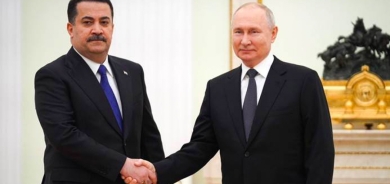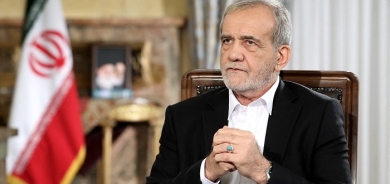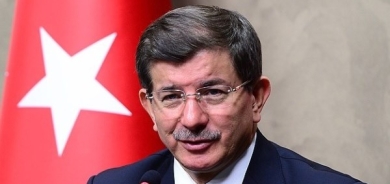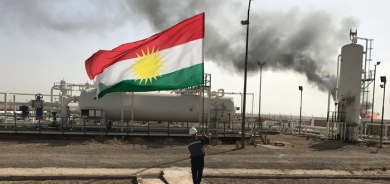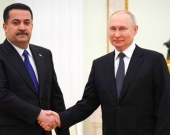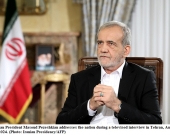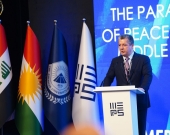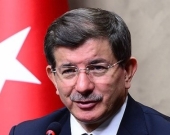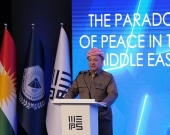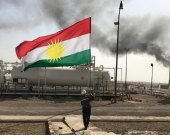UK Minister James Cleverly on the 30th anniversary of the safe haven in Kurdistan

But this year I remember 1991 in particular.
I have always been moved by the strength of resistance the Kurds showed against Saddam Hussein and the Ba’ath forces, but there is no doubt of the cost endured in this fight. The number of Kurds who died, were incarcerated or were forced to flee their homes rather than face indiscriminate violence, should never be forgotten. Brits and many others around the world watched with horror at what Saddam’s forces were doing in the Kurdistan Region. And the then British Prime Minister, Sir John Major, decided that this could not be allowed to continue.
On the day of Kurdish New Year in 1991, the UK knew it had to lead the international community to deliver a unified response to the violence. By convincing European partners to come on board, Major was able to leverage NATO and convince the George Bush Sr Administration in the US that a coalition could be formed.
These efforts, with further interventions from France, Iran and Turkey, ultimately led to the UN Security Council passing Resolution 688 – 30 years ago today. It was this UN Security Council Resolution that led to the start of Operation Haven/Operation Provide Comfort. Friendship is at its most important in times of great struggle and need. The UK, US, France and seven other members chose to honour their friendship with the Kurds when it was needed most.
On 6th April Op Haven commenced, as UK, US and French aircraft started to enforce a no-fly zone above Northern Iraq. Under an American lead, the UK deployed a ground force to support the Peshmerga and facilitate humanitarian assistance, made up mostly of Royal Marines from 3 Commando Brigade. In just under three months, these ground forces worked to clear the threat and provide space – and safe haven – for Kurds to return to their homes and start to rebuild their communities.
I know that the impact of these operations is still felt today in the Kurdistan Region of Iraq. In almost 20 years since the fall of Saddam you have built a prosperous and modern region. I saw this first-hand when I visited last December. I was struck, when speaking to the Kurds I met, by just how optimistic and hopeful you are as a community, in the face of ongoing challenges.
This hope and resilience will be a great asset as we build back better from COVID and as a new settlement is agreed between Erbil and Baghdad. We will be with you in both endeavours. When I met PM Masrour Barzani for the first time during my visit in December, I stressed how valued the KRI was to the UK and reiterated our offers of support on defence and security issues.
The UK, as in 1991, remains an important friend to the Kurdistan Region of Iraq. The British Consulate in Erbil is larger than many British embassies around the world and our team works across all elements of Kurdish society and life. Our commitment and support to the Peshmerga, in particular, continues. There are currently Peshmerga officers being trained at the Royal Military Academy Sandhurst, the UK’s world-leading officer academy.
We also have a permanent team in Erbil providing technical advice to the KRG on modernising and reforming the Peshmerga, so that it can continue to keep the region safe, in the face of many adversaries and challenges. We can never forget that the Peshmerga were our collective front line, holding out against Daesh [Islamic State group] attacks, and finally helping to expel them from all territory in Iraq. Today, they remain a critical partner in containing the Daesh threat – and ensuring that the terrorists cannot resurge. As we set out in our recent comprehensive foreign policy review, we are taking an even more robust approach to security and deterrence, which will protect all of us, increasing our investment in defence to 2.2 percent of GDP.
This support will continue, and I am incredibly grateful to have been able to see first-hand just how close the UK and KRI are. As the Minister in the UK Foreign, Commonwealth and Development Office responsible for the Middle East, I will ensure we do not lose sight of our very close and mutually-beneficial connection. The UK is currently indebted to a Kurd – as our COVID-19 vaccine minister and my good friend, Nadhim Zahawi, continues to deliver a world-beating vaccine rollout.
Today is an important moment to reflect on how the UK and our allies united to provide the Kurds with the safe haven they deserved. But whilst it is important to reflect, I am also focused on the bright future of cooperation that exists ahead of us.
Rt Hon James Cleverly MP, Minister for Middle East and North Africa at the UK Foreign, Commonwealth & Development Office (FCDO).

